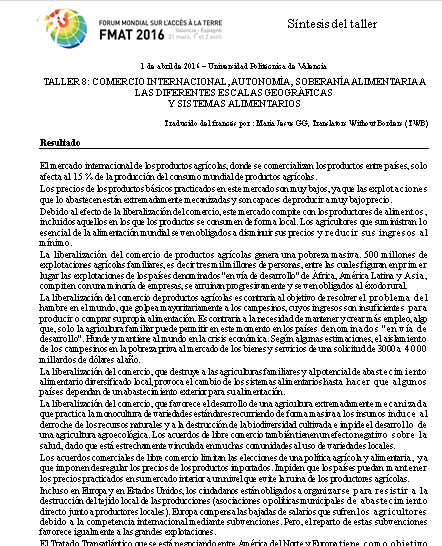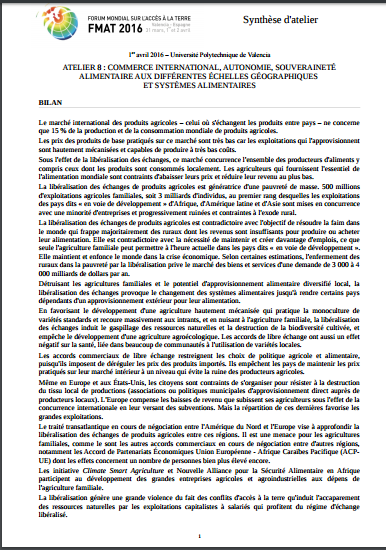TALLER 8: COMERCIO INTERNACIONAL, AUTONOMÍA, SOBERANÍA ALIMENTARIA A LAS DIFERENTES ESCALAS GEOGRÁFICAS Y SISTEMAS ALIMENTARIOS
El mercado internacional de los productos agrícolas, donde se comercializan los productos entre países, solo afecta al 15 % de la producción del consumo mundial de productos agrícolas.
Los precios de los productos básicos practicados en este mercado son muy bajos, ya que las explotaciones que lo abastecen están extremadamente mecanizadas y son capaces de producir a muy bajo precio.






